When caring for a loved one in the last stages of life, it’s crucial to understand and know what to expect. Although death is a natural part of life, the process might be unfamiliar to most people. One thing to note is that dying is a gradual process, especially for patients with terminal illnesses.
As a family with a terminally ill loved one, you may wonder what to expect during the last stages of your loved one’s life and how to ensure they are comfortable.
Understanding what to expect during this stage in your loved one’s life will help you better prepare for the transition.
At Amy’s Eden, we have created this article to highlight the physical and emotional changes to expect in your loved one during the last stages of death. We will also provide tips on how to cope and care for them. We want you and your loved one to experience peace at the end-of-life stage of their illness.
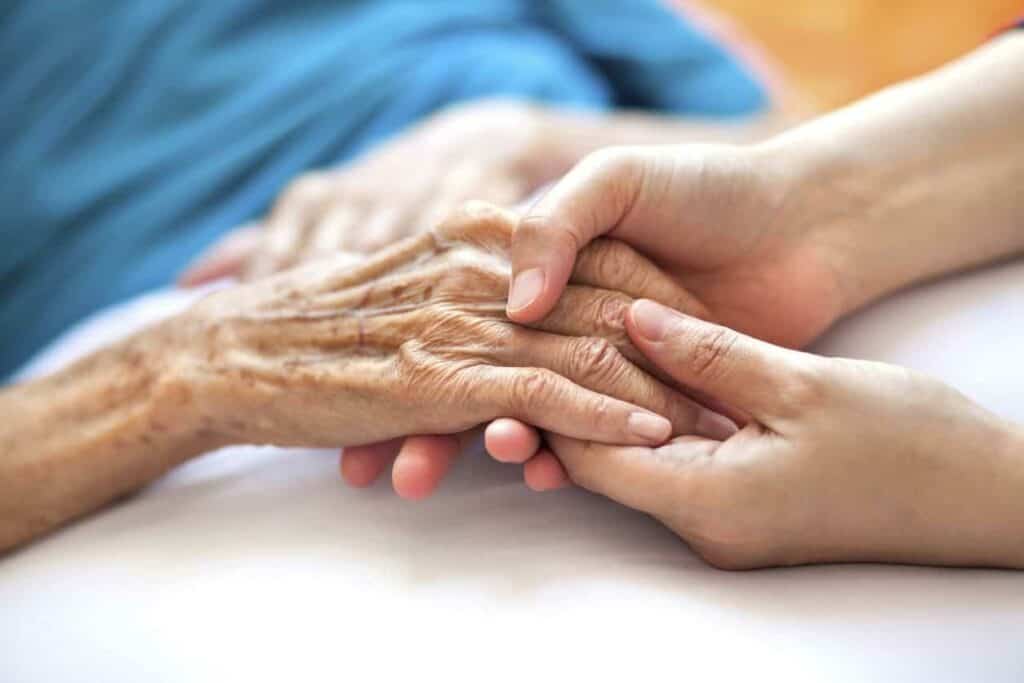
Stages of Dying and Death
It’s crucial to know that, just as your loved one’s life is unique, their death is also exceptional. It’s impossible to understand or tell precisely how their death will be. However, regardless of your loved one’s illness, there are several changes that you can expect as they near their end.
With terminally ill patients, there are three stages of dying and death. These stages are:
- Early stage
- Middle stage
- Last stage
The changes in the functioning and responsiveness of each patient generally mark the difference between each stage of death. It’s important to note that the timing and symptoms of each stage may vary from one person to the other.
Early Signs of Dying
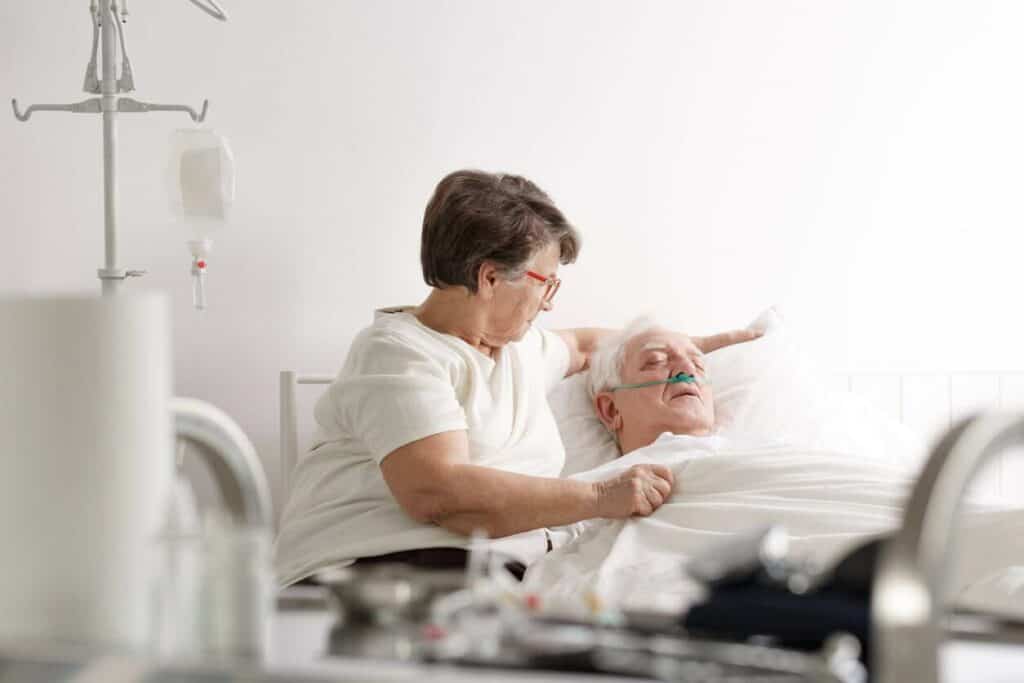
In the early stage of dying, your loved one will start eating less than usual. This stage can last from a couple of days to several weeks.
You can make their favorite meal, but as much as they want to eat it, they cannot, or they get full after a bite. Additionally, your loved one may occasionally choke on their food or fluids.
To better help your loved one, you must understand what’s happening in their bodies. Otherwise, you might get frustrated with their feeding habits. This frustration may affect your loved one as they may feel like they are letting you down.
Cause of Signs in the Early Stage of Death and Dying
During this stage, a patient’s body starts consuming less energy and, therefore, doesn’t require as much nourishment as before.
As your loved one nears their death, their body starts shutting down. When their body starts shutting down, it ensures they don’t feel hungry.
Since death is a natural process in terminally ill patients, it doesn’t matter if you give them food artificially. Feeding your loved one when their bodies have started shutting down doesn’t prevent or stop death.
You may end up doing more harm by feeding them artificially as this may cause physical distress in a patient experiencing the early signs of death.
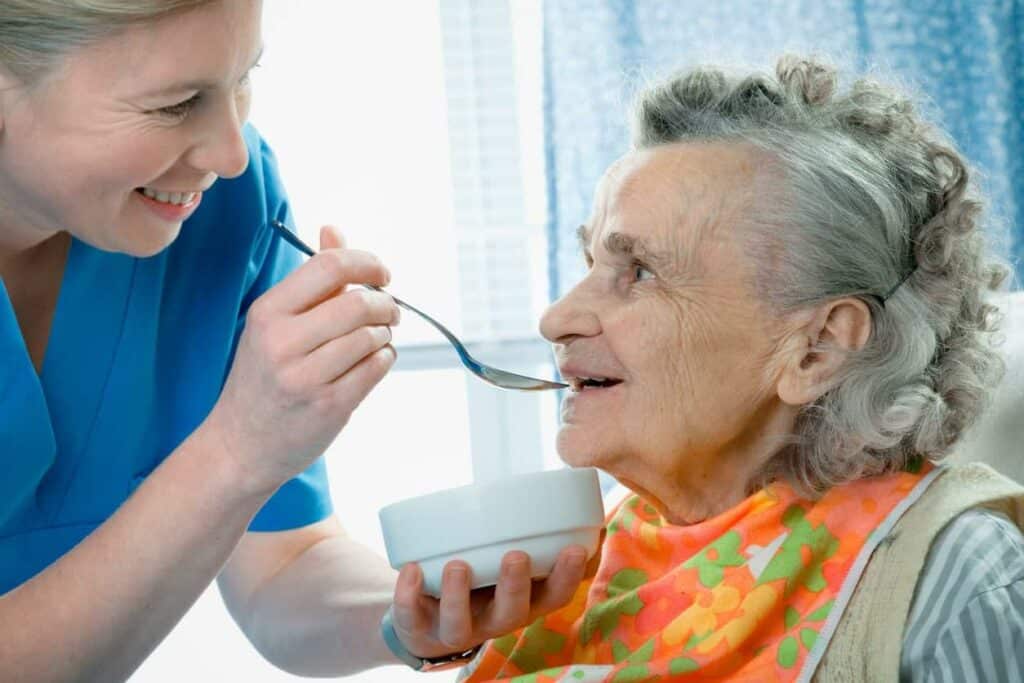
How Do I Help My Loved One Have Something During Early Stages Of Dying?
To help your loved one when you realize they are having issues with their feeding, you can offer them some sips of their favorite fluids and bits of food, but the most important aspect of feeding them is respecting their wishes even when you disagree with them.
Middle Stage of Death And Dying
During this stage, you will notice a remarkable change in your loved one’s physical appearance, which may last from several hours to several days. A patient will become less responsive to their loved ones and surroundings. Sometimes, they may be unable to move or speak.
Causes of Middle Stage of Death and Dying
During this stage, the patient’s body slows down blood circulation, and their body reserves their blood to help only the major internal organs and their functions.
One of the signs to note in this stage is your loved one’s cold feet or hands. Sometimes, they will complain of feeling cold.
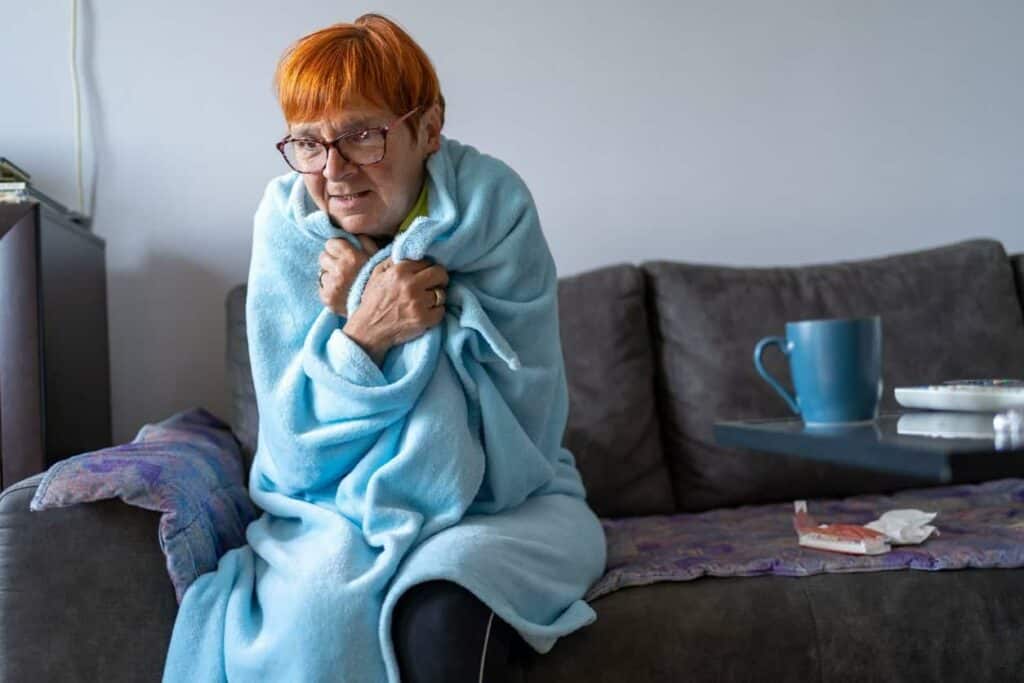
How To Assist Your Loved One in the Middle Stage of Dying
You can help your loved one by offering a blanket to increase their warmth. Be careful when using heating pads and electric blankets. Your loved one may fail to notice if they are becoming too hot with either electric blankets or heating pads and may end up with severe burns.
Even if you notice your loved one’s detachment from their surroundings, you should assume they can hear everything you say to them. Try speaking softly to them as though you are having an intimate conversation. Additionally, if your loved one likes to be touched, you can try touching them gently.
You can meditate and pray with them, try to avoid asking them questions, and expect them to answer candidly.
Last Stage of Death And Dying
During the last stage of death and dying, you will notice a lot of restlessness and disorientation in your loved one.
A patient’s bowel movement may stop during this stage, or you may notice incontinence.
A patient’s breathing will also change, and you will notice that their breathing becomes irregular and shallow, with long pauses that grow longer as their death approaches.
Sometimes, you may notice your loved one struggling with chest congestion and their throats rattling in the last stage of death, especially in the last hours.
Causes of The Last Stage of Death and Dying
The restlessness you note in this stage is primarily due to the changes in their metabolism, as the decrease in blood circulation affects their bowel and kidney functions. When their muscles relax, it may lead to incontinence.
Additionally, the decrease in blood circulation to most internal organs, like the lungs, causes them to lose their ability to clear fluids. When the lungs fail to function correctly, it may also lead to the relaxation of the respiratory muscles. This relaxation can decrease the thoracic cavity, which can be fatal, especially in a patient experiencing breathing problems.

How To Easily Help Your Loved One
When talking to your loved one during this stage, it’s important to be reassuring. Even if you are worried sick about them, let them see your confidence and be strong for them.
Touch them gently if they like to be touched. When speaking to them, talk reassuringly and respectfully, and always assume they can hear you. Always remain calm, even if seeing your loved one in such a state is distressing.
It’s crucial to ensure your loved one’s comfort during this stage. You can achieve this by ensuring they have pain medication, diapers, underbody pads, and calming medication.
If restless, have a qualified person who can help with a catheter. At this stage, using oxygen may not be helpful, but you can elevate their head on a bed and use pillows to make them comfortable.
Physical Changes In The Body Showing Signs of Dying
When your loved one is at the end-of-life stages timeline, you may notice the following signs:
- Tiredness
- May become less talkative, or more talkative
- Sleeps more and for a prolonged time
- Eat less
- Weight loss
- Skin gets thinner
- Difficulty in breathing
- Ratty breathing
- Coughing that isn’t deep
- Blotchy or mottled Skin color change
- Hands and feet may become cool to touch and, at other times, sweaty and hot.
- Hallucination due to low oxygen flow in the brain
- Disorientation
- Unconsciousness
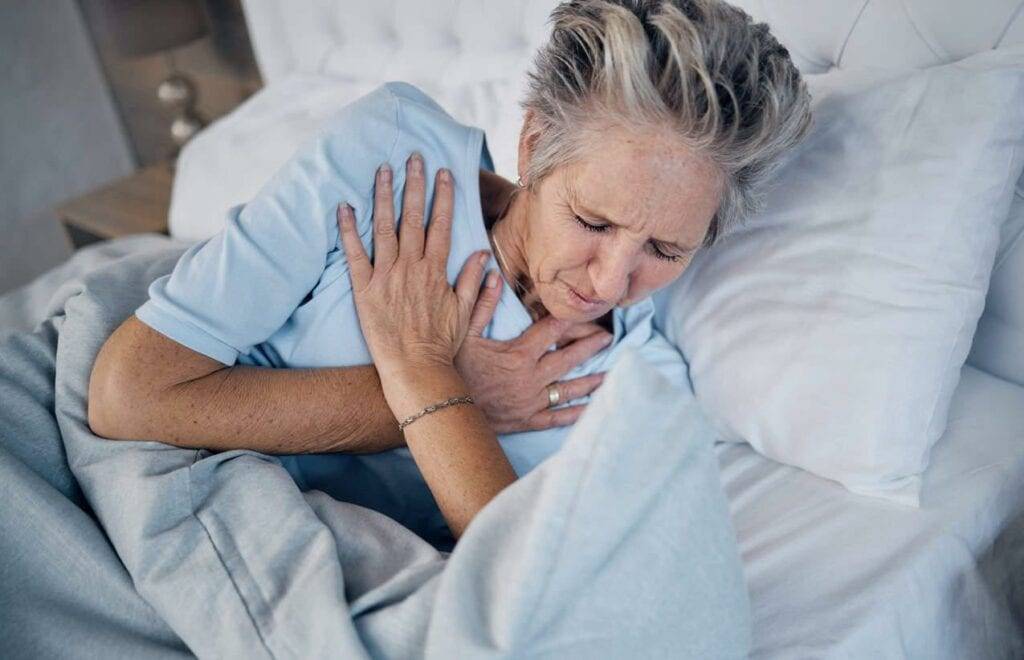
Emotional and Psychological Aspects of Dying
Although death and dying are a natural part of life, it can be very sobering. Especially when watching your loved one in the process of dying and the last stages of their life.
It’s important to honor your loved one’s wishes; if they want to be alone or to die at home, all you have to do is ensure they are comfortable during the last days or, hours before death.
Death affects all individuals involved in different ways; some of the most emotional and psychological aspects of dying include:
Anxiety
With an impending death, a patient may become more restless and anxious. Anxiety may be due to any unresolved issues your loved one might have with family and friends.
The fear of what will become of their loved ones in their absence, the fear of the unknown or death, and leaving their loved ones behind may also contribute to a patient’s anxiety.
To help with this anxiety, you can talk to your loved one’s hospice care team and let them suggest ways to help them find peace and even closure.
You can also play soothing music, ensure their room lighting doesn’t hurt their eyes, read with them, and share reassuring messages. By showing them you are doing well, you can reduce their worries.

Mood Swings
The dying process can bring out personality changes and mood swings in your loved one. It’s up to you to know how to handle this change. Sometimes, a patient may not even be aware of their drastic mood swings.
Your loved one may lash out in anger due to something that would not affect them.
Despite the angry words, which can be very hurtful, try to understand the root cause of their actions. Your loved one may be pushed out due to discomfort, uncertainty, embarrassment, or frustrations about their situation.
Validate their feelings and reassure them of your unwavering support and love. You can also talk with their hospice or palliative care and ask for ways to help your loved one.
Confusion
This confusion is usually a result of a decrease in brain function. Your loved one may need clarification about the identities of their loved one, time, day, or even their identities.
Your loved one may mistake someone in the present for someone from their past. To help your loved one, you can start by reminding them who they are, who you are, the time, and where they are.
It’s important to be gentle while you talk to a person nearing death, and don’t get frustrated or discouraged when you have to repeat the same information over and over again.
Transitioning to Death
When transitioning to death, you will notice the following signs in a patient with imminent death:
- A decrease in their blood pressure
- They are unable to swallow
- Blotchy or mottled skin
- They may experience lung congestion
- Restlessness
- Difficulty in breathing
- A lot of sleeping
- Irregular breathing
- Their skin becomes cold to the touch
- Have a weak pulse

Coping Strategies For The Patient and Their Loved Ones
Below are some signs of death, and how you can help comfort your loved one during this stage.
| Signs | What to expect | How to help and comfort your loved one during this stage |
|---|---|---|
|
Your loved one may start making financial arrangements
Ask for some of their belongings to be given away to specific people or organizations Ask someone they trust to look after their pets |
|
| Withdrawal from their circle of friends | You may notice that your loved one is losing interest in social events they used to love. This is a normal part of the dying process, as the body is trying to conserve energy and use it for the transition. |
|
| Restlessness | You may notice restlessness in your loved one’s repetitive behavior. This can result from unresolved issues they wish to resolve before their time. |
|
| Saying goodbye | Your loved one may choose to say goodbye in several ways. They can verbalize their goodbye, make eye contact, gently touch, or indirectly. |
|
Coping Strategies for Loved Ones
When your loved one dies, it doesn’t matter whether you saw it coming or not; the grief you will experience will be profound. Initially, you may feel angry, lost, sad, or deceived. It will take time for your mind to adjust to a loved one’s death. You must be patient and allow close friends and family to support you. You don’t have to be strong if you are not; it’s OK to be vulnerable; sometimes, you need this to move on with your life.
Here are some tips to cope with the death of your loved one:
Accept Your Feelings
If you feel like crying, just let go. If you want to spend some quiet time alone and reminisce about your life with your loved one, do so without feeling guilty. Sometimes, your family and friends may expect you to move on, but don’t if you are not up to it.
It’s essential to accept how you are feeling. Know that once you are done grieving, you will heal over time. One thing to understand is that healing doesn’t mean it will hurt less or you will forget your loved one; it’s a way to move on despite the loss and pain.
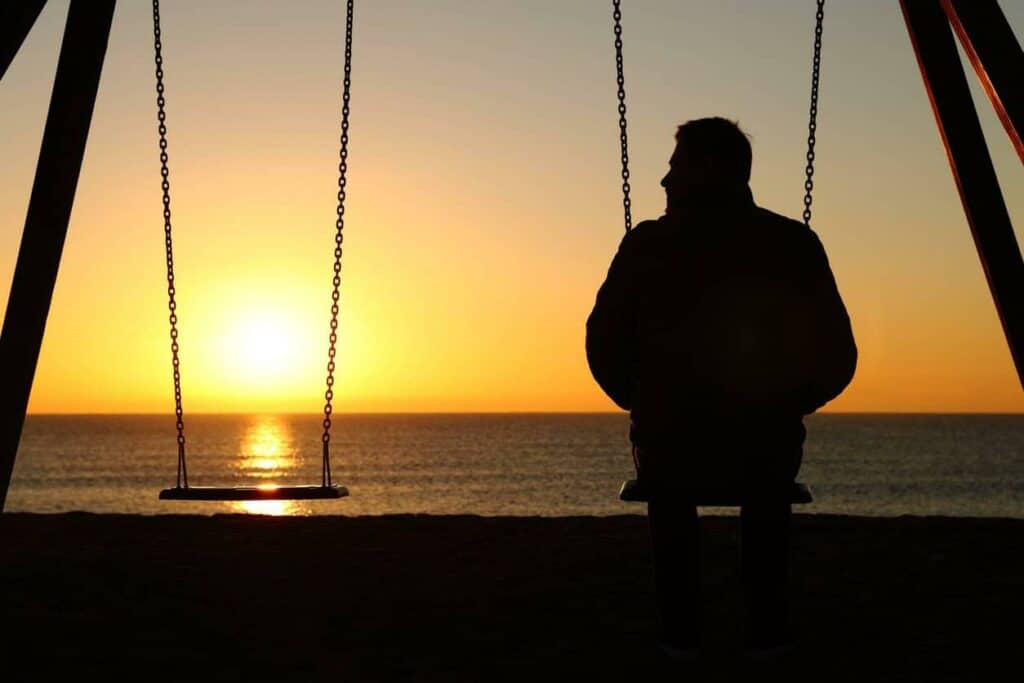
Manage Your Emotions
You may experience different emotions during this period such as anger, fear, and grief. You may be angry your loved one is dying, or that their death is unfair. Be careful not to project your anger on your loved one.
You may even be afraid to lose your loved one, and worried about what the future holds without them in it.
Anticipatory grief is an important emotion to experience during the last stages of your loved ones’ lives. You may feel detached from others, and this may compound your grief, but it is comforting to know your loved one and family are also grieving.
You must learn how to manage your emotions. Joining a support group or talking with the grief counselor in your hospice care team may help.
Join in Family Rituals
You must take part in family rituals after the death of a loved one, like attending funerals or memorial services. These rituals will help you get through the first few days after your loss, as you will be interacting with people who understand what you are going through.
Preserve Your Loved One’s Memories
It is essential to do something that will help you preserve your loved one’s memory, like planting a tree or doing something you know they cherished. It’s a way of ensuring their memories live on.
Do something in their honor; if they loved doing charity work while alive, participate in a charity event. By doing something that helps preserve their memory, you will not feel their loss acutely; you will know if they were with you, they would have joined in the event.
Hospice Care in the Dying Process
When your loved one is nearing the end of life, you can seek hospice care. At other times, your loved one may forgo curative treatments, especially when the risk is too much or it won’t be effective, and hospice care comes in handy as it ensures they are comfortable during their last stages of life.
Role of Hospice Care in Providing Comfort and Support
Hospice care plays a crucial role in ensuring your loved one has the necessary support and comfort in the face of imminent death. The hospice care team provides specialized care uniquely tailored to meet your loved one’s needs.
Interdisciplinary Approach In End-of-life Care
Hospice care incorporates specialized support from professionals like
- Doctors
- Nurses
- Social workers
- Aides
- Chaplains
- Caregivers
- Volunteers, and
- Family members
The role of an interdisciplinary team (IDT) is to ensure a patient’s last days are comfortable and their wishes are honored. This IDT also plays a crucial role in providing you and your family the support you need at this challenging time.
You can ask them questions about your loved one’s condition and expect an honest answer. They will help you deal with anticipatory grief and even be there for you after the passing of your loved ones.
It is very comforting knowing there is someone who has your best interests at heart and knowing they genuinely care for you and your family’s well-being.
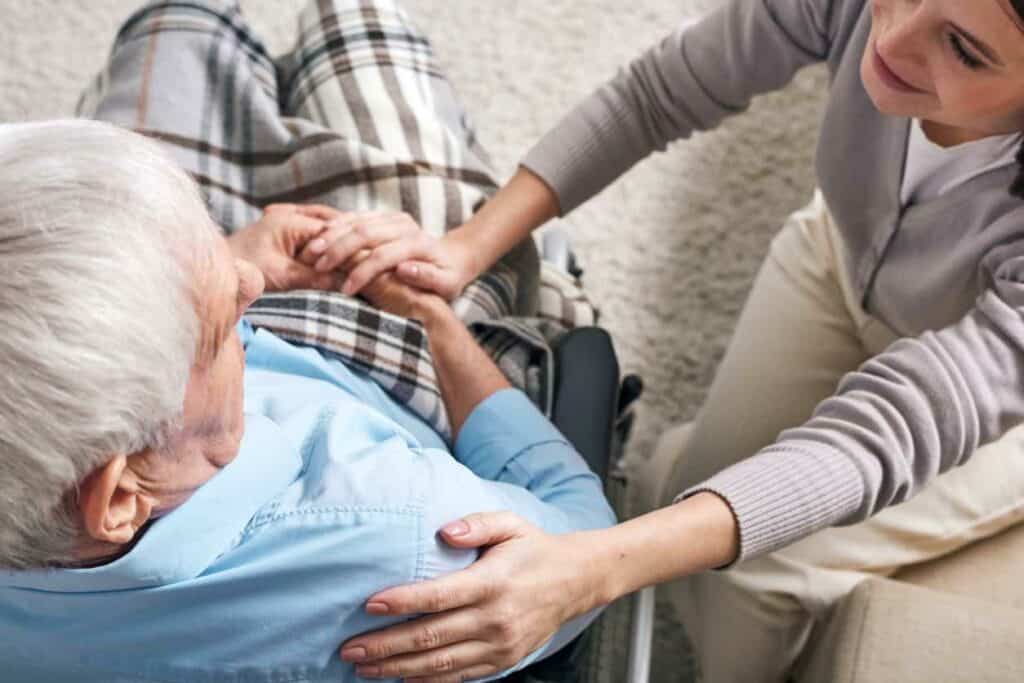
Conclusion
Most times people don’t discuss death, unlike other significant events in their lives like birthdays or relocating to a new place. This makes it challenging to handle and cope with.
You can make this a peaceful and comfortable experience if you seek palliative or hospice care for them. You and your loved one will be able to say your goodbyes and watch as your loved ones finally breathe in peace and comfort.
At Amy’s Eden Senior Care, we believe that when you are better prepared for stages of the dying process, your loved one will have compassion, respect, and dignity when it’s time to transition to death. We offer end-of-life services to help you and your loved one as they make this transition. You contact us today to learn more about our services, and how we can be an ally during this challenging time.




